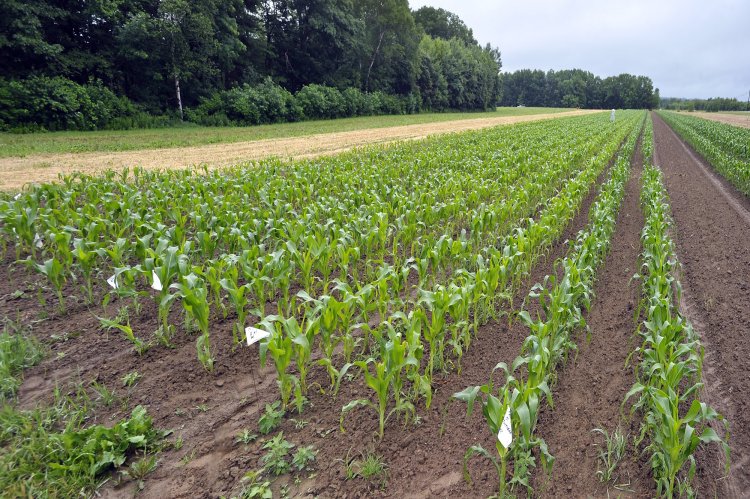WASHINGTON — The Agriculture Department has developed a new government certification and labeling for foods that are free of genetically modified ingredients.
The USDA’s move comes as some consumer groups push for mandatory labeling of the genetically modified organisms, or GMOs.
The certification, the first of its kind, would be voluntary and companies would have to pay for it. If approved, the foods would be able to carry a “USDA Process Verified” label along with a claim they are free of GMOs.
Agriculture Secretary Tom Vilsack outlined the certification in a May 1 letter to USDA employees, saying it was being done at the request of a “leading global company,” which he did not identify. A copy of the letter was obtained by The Associated Press.
A USDA spokesman confirmed that Vilsack sent the letter, but declined to comment on the certification program. Vilsack said in the letter that the certification “will be announced soon, and other companies are already lining up to take advantage of this service.”
Two years ago, Maine lawmakers passed a compromise bill that would require GMO labeling if five contiguous states approved similar legislation by 2018.
A bill before the legislature this year would eliminate the requirement that other states pass similar legislation, which would allow Maine to put its GMO labeling law into effect immediately.
Companies already can put their own GMO-free labels on foods, but there are no government labels that only certify a food as GMO-free. Many companies use a private label developed by a nonprofit called the Non-GMO Project. The USDA organic label also certifies that foods are free of genetically modified ingredients, but many non-GMO foods aren’t organic.
Vilsack said the USDA certification is being created through the department’s Agriculture Marketing Service, which works with interested companies to certify the accuracy of the claims they are making on food packages – think “humanely raised” or “no antibiotics ever.” Companies pay the Agricultural Marketing Service to verify a claim, and if approved, they can market the foods with the USDA process verified label.
“Recently, a leading global company asked AMS to help verify that the corn and soybeans it uses in its products are not genetically engineered so that the company could label the products as such,” Vilsack wrote in the letter. “AMS worked with the company to develop testing and verification processes to verify the non-GE claim.”
Genetically modified foods come from seeds that are originally engineered in laboratories to have certain traits, like resistance to herbicides. The majority of the country’s corn and soybean crop is now genetically modified, with much of that going to animal feed. GMO corn and soybeans also are made into popular processed food ingredients like high-fructose corn syrup and soybean oil.
The government says GMOs on the market are safe so mandatory labels aren’t needed. Consumer advocates pushing for mandatory labeling say shoppers have a right to know what is in their food, arguing that not enough is known about the effects of the technology. They have supported several state efforts to require labeling, with the eventual goal of having a federal mandatory label set by the Food and Drug Administration.
An Associated Press-GfK poll in December showed that two thirds of Americans support the labeling, while fewer said genetically modified ingredients are important in judging whether a food is healthy. Some of the respondents said their support of labeling was more about accountability in the food industry than the safety of GMOs.
Vermont became the first state to require the labeling in 2014, and that law will go into effect next year if it survives a legal challenge from the food industry.
Send questions/comments to the editors.



Success. Please wait for the page to reload. If the page does not reload within 5 seconds, please refresh the page.
Enter your email and password to access comments.
Hi, to comment on stories you must . This profile is in addition to your subscription and website login.
Already have a commenting profile? .
Invalid username/password.
Please check your email to confirm and complete your registration.
Only subscribers are eligible to post comments. Please subscribe or login first for digital access. Here’s why.
Use the form below to reset your password. When you've submitted your account email, we will send an email with a reset code.